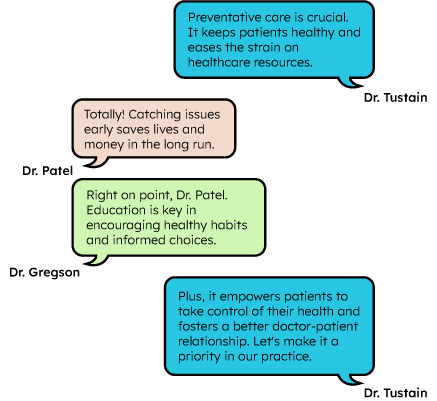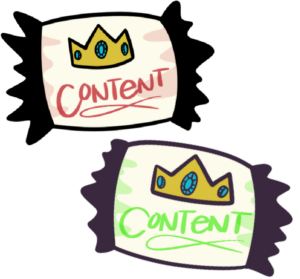You’ve probably heard the phrase ‘Content is king’ one too many times by now, but if you consider it outdated or exaggerated, let us assure you it’s far from that.
With over a billion individuals turning to Google for answers to their health-related queries daily, healthcare content has become a vital source of reliable, actionable advice, potentially impacting health decisions and outcomes. So, if the significance of healthcare content in the realm of SEO and beyond seems unclear or undervalued, it’s time for you to reassess its profound impact.
Healthcare content goes beyond mere SEO tactics. It provides essential information that can guide health choices, influence patient care, and shape public health perceptions. As such, it doesn’t just contribute to SEO strategies—it leads them. This makes it a critical component of any healthcare organization’s online presence, embodying the enduring truth that healthcare content still reigns supreme.
Undeniable Value of Quality Content
Search engines act as the digital world’s matchmakers, intricately connecting user queries with the most relevant and authoritative content. This is where the quality of healthcare content becomes the cornerstone of this matchmaking, determining how effectively a query is resolved with accuracy and reliability.
To establish your organization as a leader in your field, showcasing in-depth knowledge through quality content is key. This enhances your visibility in search engine results and strengthens your reputation as a trustworthy source of information. While different factors contribute to improving your healthcare content marketing strategy, a critical aspect to consider is aligning with Google’s E-E-A-T (Experience, Expertise, Authoritativeness, and Trustworthiness) criteria.
You have to incorporate these four elements to build a positive reputation and credibility, and eventually, convince patients to trust you. To begin with, you need to demonstrate real-world experience—share case studies, patient stories, or insights from healthcare professionals to validate your content’s practical applicability.
It’s also important to highlight the qualifications and expertise of the content creators, especially when dealing with medical or health-related content. This could include credentials of your providers, their experience, or contributions to the field.
 To establish your organization as an authoritative source, make it a practice to cite reputable sources, engage in industry discussions, and provide evidence-backed information. This helps in building a sense of institutional credibility.
To establish your organization as an authoritative source, make it a practice to cite reputable sources, engage in industry discussions, and provide evidence-backed information. This helps in building a sense of institutional credibility.
Finally, make sure that your content is accurate, up-to-date, and ethically sound. Transparency about your sources, clear disclaimers, and a professional tone contribute to the trustworthiness of your healthcare content.
Improve Your Healthcare Content to Reign Supreme in SEO
Building on the foundation of E-E-A-T, you need to develop and implement practical strategies to strengthen the impact of your content. This way, you can ensure that it meets high standards of credibility, as well as engages and reaches your intended audience effectively.
Keep Your Content Current, Authentic, and Relevant
In the healthcare field, where information and guidelines can frequently change, you have to consistently update your healthcare content to keep it as current as possible. In addition to staying relevant, this demonstrates your commitment to providing the most accurate and timely information to your patients and readers.
If you are offering new services, make sure these updates are promptly reflected on your service pages and help patients stay informed about the full range of options available to them. It’s equally important to revisit and refresh your existing blog posts and other informational resources. Regular reviews and updates based on the latest industry news and developments show that your organization is a reliable source of up-to-date healthcare information.
At the same time, steer clear of overly technical language and strive for a balance between informative and approachable. While maintaining professionalism, your content should be relatable and easy to digest, making complex medical information accessible to a broader audience.
Also, try your best to infuse your healthcare content with originality. The digital healthcare space is crowded, so don’t be someone who replicates others’ ideas. Instead, find and highlight what makes your perspective, services, or insights unique. This could be through innovative approaches to common healthcare topics, unique patient care strategies, or insights drawn from your organization’s specific experiences and expertise.
Use Backlinks to Improve SEO Impact
Backlinks from authoritative websites play a crucial role in enhancing the visibility and credibility of your content. Think of these backlinks as professional endorsements in the online world. When respected and well-known healthcare sites link to your content, this not only attracts the attention of your target audience but also signals to search engines the value and relevance of your content.
The process of acquiring backlinks should be strategic and focused on quality rather than quantity. Your goal should be to gain links from websites that are not only reputable in the healthcare industry but also relevant to your specific area of expertise. With this targeted approach, backlinks can contribute positively to your site’s SEO performance and overall online reputation.
Strategic Keyword Integration
The outdated practice of keyword stuffing—overloading content with an excessive number of keywords—has long fallen out of favor because of its negative impact on readability and search engine penalties. Instead, the focus is on integrating keywords naturally and contextually, so that your content remains informative and engaging, while also being optimized for search engines.
When balancing SEO with content quality, treat well-researched keywords like seasoning—just enough to enhance flavor without overwhelming the dish. They should subtly improve your healthcare content’s relevance and discoverability while maintaining its informational value and readability.
Bring a Human Touch to SEO
While it’s important to meet SEO principles, your primary audience is humans, not algorithms. Write in a way that resonates with real people and think of it as having a conversation with a trusted friend.
This approachable and relatable style of writing can make complex healthcare topics more digestible and engaging. Remember, your readers are looking for genuine advice and information, not just keywords. When you personalize your content, you create a connection that can lead to greater trust and, ultimately, a stronger relationship with your audience. By striking the right balance between being informative yet accessible, and expert yet approachable, you will turn readers into loyal followers and clients.
Mix It Up
To raise your healthcare content beyond the conventional, try using a diverse mix of engaging formats. Move past the traditional, text-heavy approach and embrace more dynamic methods like vlogs, podcasts, and GIFs. This variety not only breaks the monotony but also meets different audience preferences, making your content more accessible and engaging.
For example, integrating vlogs and podcasts can bring a personal touch to your content, making complex healthcare topics relatable and easier to understand. This way you offer a platform for storytelling and personal connection that text alone may not achieve.
Images and GIFs add an important visual element to your content. A well-chosen image or a cleverly used GIF can convey complex ideas simply and effectively. However, these visuals must be optimized for quick loading and accompanied by descriptive alt text, enhancing accessibility for all users.
Create Snackable Content
 Today’s users often prefer quick, easily digestible pieces of information, and to meet this trend, you have to format your healthcare content into smaller, more manageable pieces. This approach makes complex information more accessible and keeps your audience engaged.
Today’s users often prefer quick, easily digestible pieces of information, and to meet this trend, you have to format your healthcare content into smaller, more manageable pieces. This approach makes complex information more accessible and keeps your audience engaged.
Instead of large blocks of text, break your content into shorter paragraphs, which make for easier reading. This can help you improve readability and organize information in a more consumable format. Use catchy, informative headers to guide your readers through the content and to highlight key points. Also, bullet points are excellent for summarizing information or listing important facts, making it easier for readers to scan through and grasp the essentials.
By creating snackable content, you accommodate the fast-paced browsing habits of your audience, making your healthcare information more approachable and appealing, but also encouraging users to stay longer on your site, exploring what you have to offer.
The Centerpiece of Your SEO Puzzle
As various SEO trends and tactics ebb and flow in their influence, content is one element that remains consistently at the forefront, playing a lead role.
In the complex interplay of factors, it’s the quality of your content that ultimately determines the success and impact of your online presence. If it isn’t compelling, informative, and relevant, even with the most sophisticated SEO strategies, it can be hard to truly capture your audience’s attention. That’s why content remains the undying emperor of the digital realm, reigning supreme in its ability to inform, influence, and inspire.
To maximize the potential of healthcare content, you can use SocialClimb’s healthcare marketing platform as a comprehensive solution tailored to the unique needs of the healthcare industry. A range of transformative features helps you connect with patients, build trust, and establish a loyal patient base, as well as track and analyze performance to drive tangible results for your healthcare organization.














